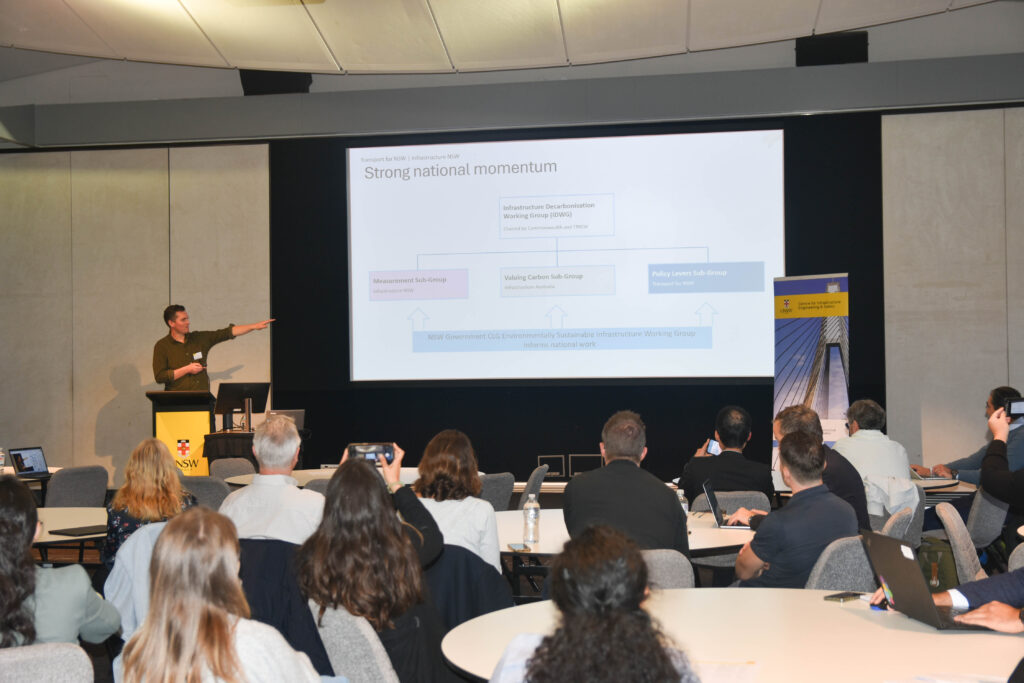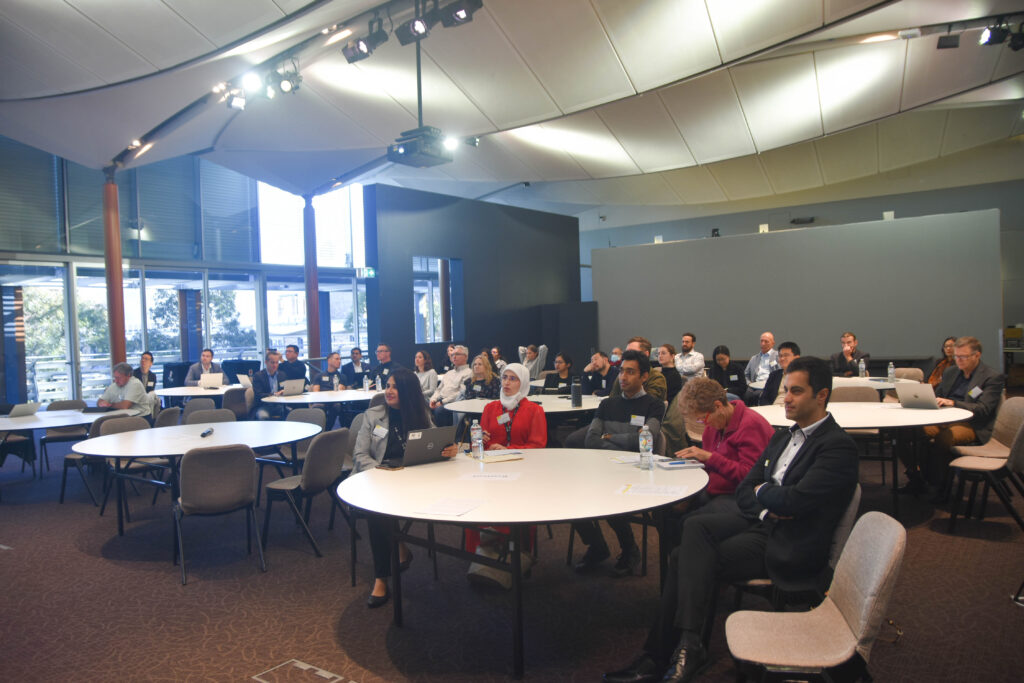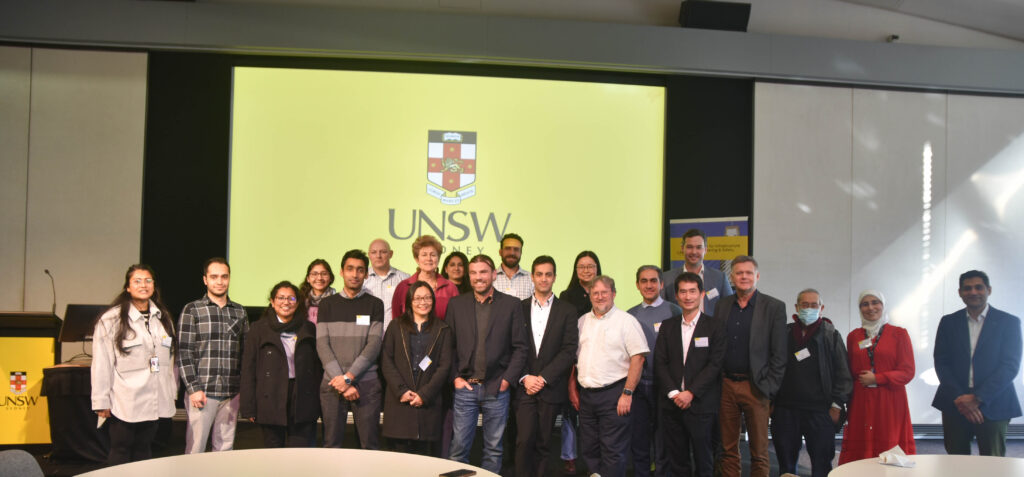Event date: June 28, 2024
Main obstacles preventing the widespread adoption of innovative cement and concrete decarbonisation technologies
The roundtable discussions at the Concrete Decarbonisation Forum, held on June 28, 2024, at the University of New South Wales, brought together a diverse group of experts, policymakers, and industry leaders to address the multifaceted challenges in decarbonising the concrete sector (see the whole day’s description through this link). These dynamic sessions focused on identifying and overcoming barriers to the adoption of low-carbon technologies and practices. Key topics included the establishment of guidelines and standards, effective communication and training, risk management, marketing strategies, and shifting traditional mindsets. These discussions were pivotal in highlighting actionable solutions and collaborative efforts necessary to drive the industry towards a sustainable future.

Demonstrating Performance and Standards
The first roundtable discussion at the Concrete Decarbonisation Forum focused on the critical issue of demonstrating performance for new low-carbon concrete products. Participants highlighted the necessity of adapting current testing protocols and standards to facilitate the rapid market entry of innovative materials like Claircrete, a zero-carbon concrete. The conversation underscored the tension between the industry’s conservative nature—driven by the need for safety and longevity in infrastructure—and the urgent demand to meet decarbonisation targets by 2030, 2035, and 2050. The group emphasised the importance of developing accelerated testing methods to validate new products’ performance without compromising safety, ensuring that novel solutions can be adopted swiftly to achieve sustainability goals.
Standards, Education, and Mandates
The second roundtable discussion at the Concrete Decarbonisation Forum emphasised the critical role of education, marketing, and standards in advancing sustainable concrete practices. Participants highlighted the need for an incremental approach to incorporating supplementary cementitious materials (SCMs) and sustainability ratings throughout the supply chain. The discussion acknowledged that existing standards often delay innovation and suggested that industry-led efforts could accelerate the adoption of new standards. The group also stressed the importance of educating engineers about alternative compliance pathways within the National Construction Code and the necessity of strategic mandates in sectors like government procurement, affordable housing, and defense to drive large-scale adoption of sustainable materials. Additionally, the need for an integrated data project to consolidate sustainability efforts and the convening power of key decision-makers to push these initiatives forward was underscored as vital for achieving substantial progress.
Harmonisation, Data, and Commercialisation
The third roundtable discussion at the Concrete Decarbonisation Forum centered on the importance of harmonising environmental procurement policies across jurisdictions and enhancing data accessibility. Participants emphasised the need for a unified approach to climate construction and embodied carbon policies among local councils and states. The discussion highlighted the role of tools like the Neighbours tool for capturing emissions data and making it publicly accessible for engineers. The group also addressed the challenge of modernising government processes to facilitate these changes, recognising the need for collaborative efforts and stronger convening power. Additionally, the conversation focused on the commercialisation of sustainable materials, noting the necessity of government incentives to scale up production and market availability. The roundtable concluded that both financial support and a mentality shift within the industry are crucial for achieving significant progress in the adoption of sustainable concrete alternatives.

Key takeaways
The roundtable discussions at the Concrete Decarbonisation Forum highlighted several critical themes essential for advancing sustainable concrete practices. The first roundtable underscored the importance of developing accelerated testing methods to validate the performance of innovative low-carbon concrete products while maintaining safety standards. The second discussion emphasised the need for industry education, strategic mandates, and integrated data projects to drive the large-scale adoption of sustainable materials. The third roundtable focused on harmonising environmental procurement policies across jurisdictions, enhancing data accessibility, and incentivising the commercialisation of sustainable materials. Collectively, these discussions revealed the urgent need for collaboration, government intervention, and a shift in industry mindset to achieve significant progress in decarbonising the concrete sector.

